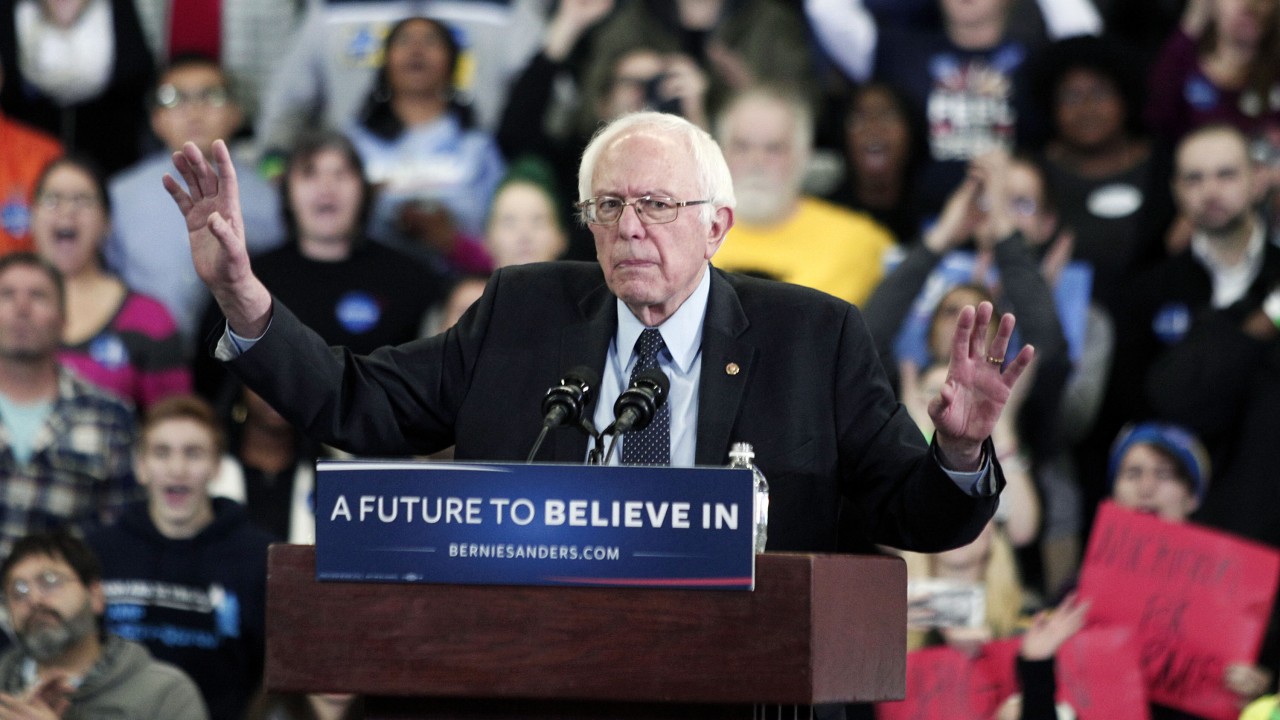
Democratic Presidential Candidate Bernie Sanders holds his first campaign rally in Michigan at Eastern Michigan University February 15th, 2016 in Ypsilanti, Michigan. (Photo by Bill Pugliano/Getty Images)
2/27/2016 Update: In response to this post and others calling for economists criticizing Senator Bernie Sanders’s economic plan — and economist Gerald Friedman’s positive analysis of it — to run the numbers, two of the four former heads of the Council of Economic Advisers have done just that. On Thursday, Christina Romer and David Romer released their own analysis of Friedman’s numbers. In what The New York Times calls a “careful forensic examination,” the University of California-Berkeley economists found Friedman’s mathematical assumptions faulty or, at the very least, at odds with “conventional economic thinking.” Get all the details at The New York Times. Dean Baker’s response to the new numbers is here.
This post originally appeared at Dean Baker’s “Beat the Press” blog at the Center for Economic and Policy Research.
A New York Times piece headlined “left-leaning economists question cost of Bernie Sanders’ plans” may have misled readers about the extent of skepticism among economists who consider themselves left-leaning. I can say this as a card-carrying left-leaning economist who often talks to other card-carrying left-leaning economists.
While there are undoubtedly many left-of-center economists who have serious objections to the proposals Sanders has put forward, there are also many who have publicly indicated support for them. Remarkably, none of those economists were referenced in this article. In fact, to make its case on left-of-center economists’ views, The New York Times even presented the comments of Ezra Klein, who is neither an economist nor a liberal, by his own identification.
It also misrepresented the comments of Jared Bernstein (a personal friend), implying that they were criticisms of Sanders’ program. In fact his comments were addressed to the analysis of Sanders’ proposals by Gerald Friedman, an economist at the University of Massachusetts who is not affiliated with the Sanders campaign.
It also presented the comments of Brookings economist Henry Aaron about the views expressed by “other economists in a ‘lefty chat group’ he joins online.” This would seem to violate The New York Times’s usual policy on anonymous sources.
Sanders has a very ambitious agenda covering everything from universal Medicare, reforming the financial sector, paid sick days and vacation, free college and universal childcare. If an economist, left-leaning or otherwise, can’t find some grounds for skepticism on any of these proposals they should probably be in a different line of work.
These are all big ideas, each of which will face enormous political opposition even if Bernie Sanders were in the White House. Sanders has not given a fully worked out proposal in any of these areas, nor is it reasonable to expect a fully worked out proposal from a candidate for the presidency. His campaign platform outlines general approaches. In the event Sanders got to the White House, it would be necessary to draft fully worked out legislative language which would almost certainly amount to hundreds of pages, and quite possibly thousands of pages, in each area. In addition, whatever he initially put on the table would have to be haggled over with Congress, even assuming that he had a much more sympathetic group than the current crew.
While it is nice that The New York Times is subjecting Sanders’ views to serious scrutiny, it would be good if it also subjected the views of other candidates to the same scrutiny. For example, Secretary Clinton has indicated a desire to give more opportunity to African Americans and Hispanics, yet she has not commented on the decision by the Federal Reserve Board to raise interest rates at the end of last year. This rate hike was intended to be the first of a sequence of rate hikes.
The purpose of raising interest rates is to slow the economy and the rate of job creation, ostensibly to prevent inflation. The people who will be disproportionately hurt by slower job growth and high unemployment are African American and Hispanic. New York Times readers would likely be interested in knowing how Secretary Clinton can reconcile her commitment to helping African Americans and Hispanics with her apparent lack of concern over the Fed’s decision to raise interest rates and deny them jobs.
Whatever standard of scrutiny The New York Times chooses to apply to presidential candidates it should apply to them equally. It is not good reporting to apply one standard to Senator Sanders — even inventing credentials to press its points — and then apply lesser standards to the other candidates.
The views expressed in this post are the author’s alone, and presented here to offer a variety of perspectives to our readers.




